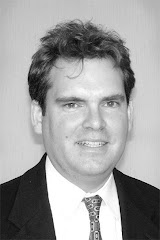In the production of many World War II movies a general casting theme developed. Every American fighting unit chronicled on the big screen seemed to have the edgy, smart aleck from Brooklyn, the fearless, generations-deep-into-the- military southerner and the level-headed Midwesterner. The midlander didn’t have the great one-liners, just a quiet resolve.
It was the Iowan, the Ohioan or the sergeant from Indiana who came up with the clever idea to time the throwing of grenades at Japanese troops just right, or out-flank some Germans. These were leaders with competence, not swagger.
We used to celebrate them.
And perhaps in this time of great transition, with the war on terror, environmental disaster looming and other challenges, America can turn to the World War II narrative of leadership, the one with Midwestern sense trumping East Coast attitude and Southern-fried charm.
Potential Midwestern presidential candidate like our governor, Tom Vilsack, and Indiana’s Democratic U.S. senator, Evan Bayh, can make the case: we’re not the most exciting guys in the party’s platoon, but we’ll lead with basic competence.
In fact, Bayh and Vilsack conceivably could run as a ticket, one the highly paid pundits would dismiss in laugh-out-loud fashion because of its failure to hold any geographic balance.But Bayh-Vilsack or Vilsack-Bayh (Bayh’s been a senator as well as a governor and has a famous political dad so odds are he’d lead the ticket) could be the Clinton-Gore package for 2008, men who affirm each other’s credentials and send a message rather than diversifying a ticket.
They could say to the nation: enough Texas swagger, and good-bye polarizing East Coast-West Coast snooty latte liberalism. Elect a couple of guys from the center of the country who know their way around places like Fort Wayne and Fort Dodge — and come across as boring but highly trustworthy.
Lt. Gov. Sally Pederson, chairman of the Iowa Democratic Party, of course won’t say whether Vilsack is running. He may not even know yet.But Pederson plans to work for Vilsack’s campaign should he run.
“He stands tell among them,” she said of the likely Democratic field. Similarly, Bayh, who spent part of a recent Saturday in Council Bluffs, is a likely candidate. He didn’t visit one of the southern Iowa city’s three casinos, so why else would be in town?
Right now, Bayh and Vilsack would be considered second-tier, potential safe vice presidential picks with Hillary Clinton the front-runner, former Virginia Gov. Mark Warner (who has been to Carroll) being the wiseguy pick and Barack Obama, the Illinois senator, in the role of the dream candidate for many Democrats.
More than a half-dozen other Democrats (including Al Gore in a possible comeback role on the heels of his acclaimed global warming movie “An Inconvenient Truth”) are getting serious mentions.In an era in which more people cast votes for final two contestants on FOX’s “American Idol,” it is admittedly a stretch to see how position-paper reading pols like Vilsack and Bayh trump the pizzazz of others.
But with the nation split by ugly partisanship on the coasts and in the South, the next presidential candidate may have to emerge from the Midwest, an area that was known to previous generations as a land of reason and bipartisanship — a place where Tom Harkin and Charles Grassley could win overwhelmingly in one state and Evan Bayh and Richard Lugar could do the same in another.
For their parts, Bayh and Vilsack should encourage people to watch more World War II movies.




